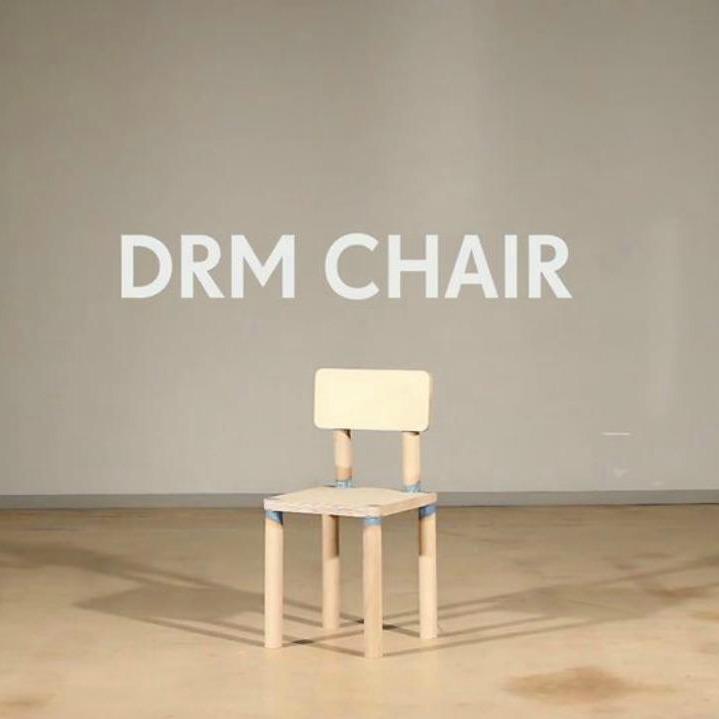BOB GARFIELD: This hour of On the Media is devoted to ownership, specifically of intellectual property, mental products, as it were, though later we will take a detour into the physical. Last week, we saw the creation of the DRM Chair.
MAN [IN FRENCH]: Action!
BOB GARFIELD: DRM stands for Digital Rights Management, the safeguards copyright holders build into their digital products. DRM dictates whether you can move a song from one device to another or share it with your friends. This DRM Chair I mentioned, developed by a team in Switzerland, only functions for eight sittings. [KNOCKING SOUND] After each person sits on the chair, a knocking sound indicates how many users are left. When the counter reaches zero, then the joints start to smoke and the chair collapses. The general message is that digital rights management, as practiced, is absurd.
BROOKE GLADSTONE: Nowadays, much of the debate over intellectual property seems to have devolved into two extreme positions, either that intellectual property should be protected for all eternity or that everything should be free. As Duke Law Professor James Boyle explained a couple of years ago, neither is what the founding fathers intended.
In the original 1790 Copyright Act, authors were given a term of 14 years in which no one else could encroach on their work. If they were still alive at the end of that period, they could renew it for an additional 14 years.
PROFESSOR JAMES BOYLE: You give the limited right to the author to encourage production and distribution, and then you end the term and you have this world of free competition. Sadly, in the world of copyright, at least, we've given up on that and we have continued to lengthen the term to a point which is now utterly ridiculous. Copyright today lasts for your life plus 70 years. It's very hard to incentivize dead people to produce new things.
[BROOKE LAUGHS]
But Congress apparently believes they can.
BROOKE GLADSTONE: Well, what you're saying is that if the idea here is to promote our intellectual lives and educate people, extending the copyrights of dead people is not likely to lend itself to that effort.
PROFESSOR JAMES BOYLE: The tragic thing is that the people who wrote the Statute of Anne and the people who wrote the US Constitution really thought the copyrights goal was about promoting access to knowledge. The idea of a limited term of holding copyright, sure, that was central to that notion. That’s how we disseminated the ideas.
And, of course, since lots of works are commercially unavailable, and we don't know who the copyright holders are - we can't find them - their so-called “orphan works,” in many cases copyright acts as a fence, which means you can't distribute works. Even if you wanted to pay, you can't pay; there’s no one you can pay to make a new addition, to make a movie out of it.
In this case, it’s a one-way valve. Copyright takes the stuff in, almost like a black hole, locks it up and now you can't get it out. This is exactly the opposite of the idea behind the US Constitution, which is - let’s promote the flourishing of human creativity.
[MUSIC UP AND UNDER]
BROOKE GLADSTONE: Jamie, thank you very much.
PROFESSOR JAMES BOYLE: My pleasure.
BROOKE GLADSTONE: James Boyle teaches law at Duke University.
[“GOOD GUYS AND BAD GUYS”]:
Well, there are good guys and there are bad guys
And there are crooks and criminals
There are doctors and there are lawyers
And there are folks like you and me.
[SINGING/UP AND UNDER]
